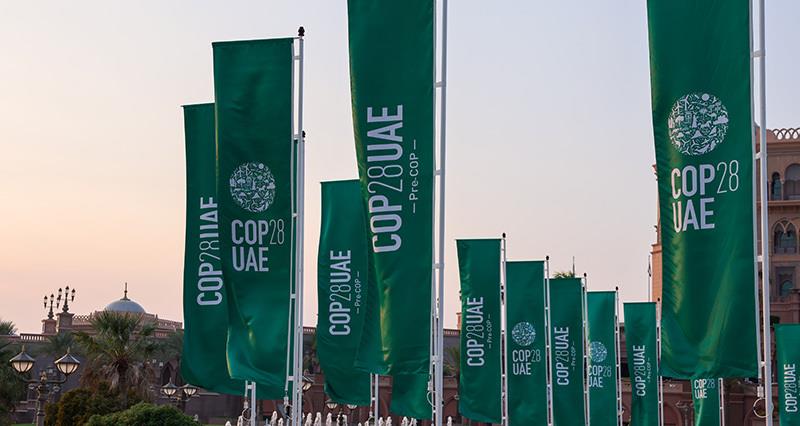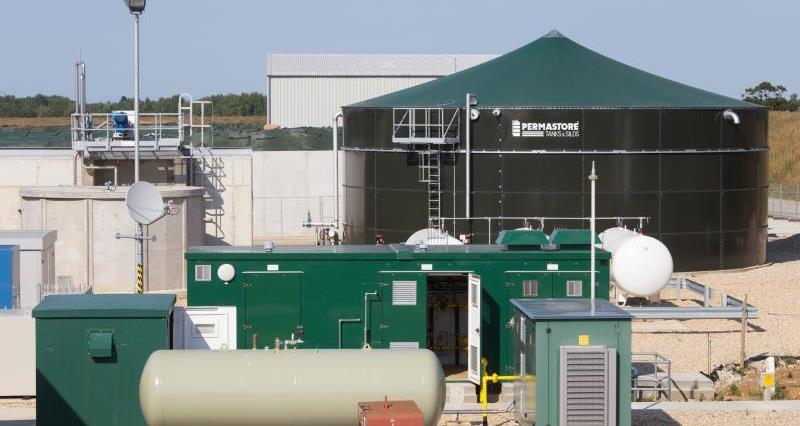The Executive Secretary of the UN Framework Convention on Climate Change, Simon Steill, issued a call to action on the eve of COP28, reminding everyone that 鈥渘o country is immune鈥� from the impacts of a changing climate and finished by saying 鈥淒ivisions will destroy us. But solutions can save us鈥�.
UN Secretary General Antonio Guterres went further, telling delegates that 鈥渨e are living through climate collapse in real time鈥�. And that鈥檚 why farmers from across the world are here in Dubai: because they have limited immunity to severe weather, because despite their differences there is so much that unites them, and because farmers are part of the solution to the climate crisis.
Some of those divisions were overcome when, at the opening plenary session of the Conference, governments agreed to launch a long-awaited fund to help developing countries that are particularly vulnerable to the adverse effects of climate change, known in the negotiations as 鈥榣oss and damage鈥�. The UAE (United Arab Emirates) committed $100m to the fund, with others including the EU and the UK immediately announcing their contributions. This has long been a contentious issue, and the announcement meant that COP28 got off to a great start, to the sound of spontaneous applause.
Food and agriculture
More than 130 countries including the UK signed the . This aims to scale up adaptation to reduce the vulnerability of farm businesses, promote food security and nutrition, strengthen the integrated management of water in agriculture and food systems, and maximize the climate and environmental benefits associated with agriculture and food systems.
Signatories committed to strengthening efforts to integrate agriculture and food systems into national climate plans, to revisit or orient policies and public support related to agriculture and food systems, to accelerate science and evidence-based innovation, and to strengthen an open, fair and transparent multilateral trading system with the World Trade Organisation at its core.
NFU Deputy President Tom Bradshaw said the declaration and accompanying 拢2.6bn commitment for regenerative agriculture and innovation was a 鈥渨elcome step鈥� following calls for the international climate negotiations to recognise the importance of agriculture.
鈥淗owever, it鈥檚 essential that the responsibility for reducing greenhouse gas emissions is not placed solely on farmers and growers, while recognising the need to involve them in decision-making,鈥� he added.
鈥淩egenerative farming is not a silver bullet but just one of a number of approaches alongside science-based solutions, and it is key that the government and farming sector work together to find effective and practical solutions.
"Governments across the globe have shown they recognise the investment needed in sustainable food production, but we need our own government to act now and implement the right policies so British farmers can invest in a sustainable future.鈥�
The Farmers鈥� Constituency responded to the declaration, stating that:
- it welcomes the 鈥楥OP28 UAE Declaration on Sustainable Agriculture, Resilient Food Systems And Climate Action鈥� and strongly agrees that a systems-based approach is essential not only to reduce agricultural emissions but also to deliver a step change in global food security and the well-being of farmers and rural communities.
- the Declaration will only achieve its objectives if farmers are at the decision making table. We implore governments to focus on working with us to co-design policy that empowers and supports farmers to unlock farmer-driven climate and food security solutions and leads to food systems that are fair, inclusive and climate-resilient.
鈥�Regenerative farming is not a silver bullet but just one of a number of approaches alongside science-based solutions, and it is key that the government and farming sector work together to find effective and practical solutions.鈥�
NFU Deputy President Tom Bradshaw
Negotiations at an impasse
However, negotiations at COP28 on the SSJW (Sharm el-Sheikh joint work) on implementation of climate action on agriculture and food security are currently at an impasse. Continuing on from the lack of progress made at the Subsidiary Body SB58 meeting in Bonn in June, the parties are unable to move forward and agree the required roadmap setting out the work programme for the four year SSJW.
This stalemate is fuelled by a lack of agreement over the proposal by the G77 group of countries for a co-ordination group to work in parallel to the SSJW. The mandate of the proposed co-ordination group is unclear, and many parties cannot agree with the establishment of a permanent, co-ordination body which consists of the same people as SSJW.
Without a clear mandate for the group, such duplication is both unhelpful and unnecessary. It is clear from negotiators鈥� interventions that they feel the information to justify establishment of this co-ordination group has not been communicated. The parties have yet to fully discuss the operationality of the online portal and the workshop topics, or indeed how many workshops should take place.
Renewable energy and energy policy
Initial progress at the gathering of world leaders over the first few days of COP28 has also been rapid.
In a highly symbolic move, the United States joined the PPCA (Powering Past Coal Alliance), which commits countries to building no new coal plants and phasing out existing coal power stations.
The PPCA now numbers 56 countries, including nearly all of Europe 鈥� and pressure is growing on China, South Korea, Japan and Australia to join.
Advances were also made on tackling global methane emissions, with the USA unveiling new regulations to cut methane leaks from the oil and gas sector, and a separate commitment by 50 oil majors to 鈥榥ear zero鈥� methane emissions and an end to routine gas flaring by 2030.
Meanwhile, 117 countries have signed up to a pledge brokered by the US, the EU and UAE, to triple renewable energy production and double energy efficiency by 2030. Commentators are impressed that this sends a very strong signal to investors and markets to accelerate green energy growth. Perhaps there is even a chance of a more robust international agreement by the end of COP28 on actually phasing out all fossil fuels? Watch this space.





